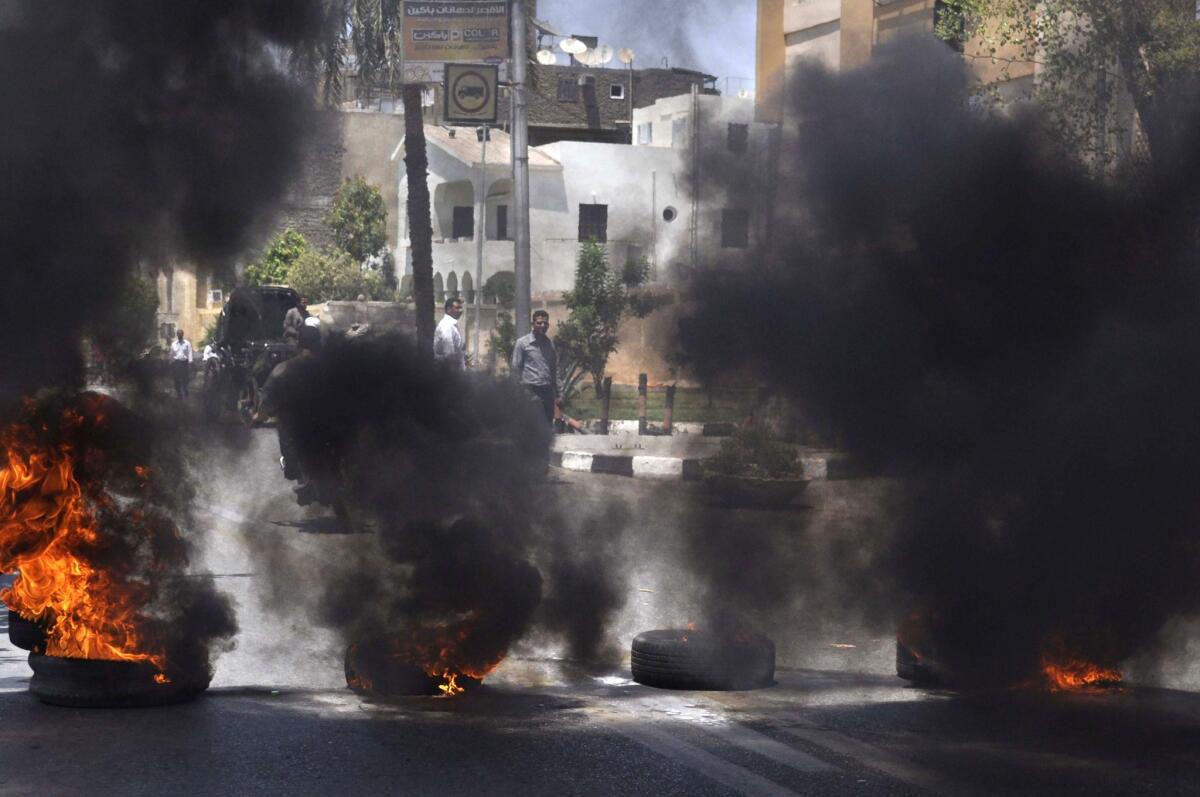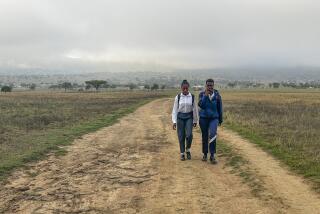The Week Ahead: From Cape Town to Cairo, it’s all about Africa

Obama goes to Africa to hail democracy and joint ventures
Wednesday, June 26 -- President Obama embarks on a weeklong trip to Africa on Wednesday to show support for the continent’s developing democracies and to strengthen the U.S. role in a global competition for African business that has so far been dominated by China.
The trip is only Obama’s second to sub-Saharan Africa, and the sole other visit -- to Ghana in 2009 en route home from Europe -- lasted less than 24 hours.
The selection of Senegal, South Africa and Tanzania as the stops on his African itinerary reflects the Obama administration’s respect for the countries’ transitioning from colonial and autocratic rule to strengthening democracies and economic boom times.
In Senegal, security is likely to top the agenda, as Senegal is in an area rife with corruption, rebellion and brutality. It shares a border with Mali, another former French colony where Islamic militants are waging war against a weak government. An even more destabilizing insurgency by Islamic militants in Nigeria roils the region, and weapons seized from Libyan strongman Moammar Kadafi’s arsenals when he was ousted and killed two years ago have flooded into rebellions across the Sahel.
In South Africa, Obama planned to pay his respects to ailing former President Nelson Mandela and tour the Robben Island prison where Mandela spent most of his 27 years as a political prisoner.
Tanzania, the last leg of Obama’s trip, represents the natural resource-rich environment into which U.S. industry would like to step up investment and partnerships. China has a head start of nearly a decade in the quest to help African states extract their bounty of gems, precious metals and energy resources that could sustain already impressive growth rates.
Obama and his family had planned to take a safari in Tanzania but reportedly scrapped the side trip because of the cost of providing protection for the president in a vast game park stalked by lions and other predators. Even without the safari, the bill to taxpayers may be as much as $100 million to airlift dozens of vehicles, position fighter jets and ferry in truckloads of bulletproof glass to secure the First Family’s accommodations, the Washington Post reported, citing confidential government planning documents.
Morsi anniversary to be celebrated with campaign to throw him out
Sunday, June 30 -- Egyptians plan to mark the one-year anniversary of President Mohamed Morsi’s inauguration with a lawsuit seeking his ouster and a massive protest against his attempts to impose Islamic principles and values on the organs of state.
The Rebel petition drive that began in May aims to collect 15 million signatures -- more than enough to supersede Morsi’s vote total from the 2012 election and challenge his legitimacy under a constitutional provision the petitioners claim gives that power to the people.
Popular dismay with Morsi’s commingling of religion and politics and Egypt’s economic decline during his tenure have led to increasingly violent confrontations between supporters from his Muslim Brotherhood and opponents favoring separation of church and state.
Public ire over Morsi’s imposition of Islam on Egypt’s spiritually diverse society rose to an angry new level last week after he appointed eight Islamists to gubernatorial positions, including for the vital tourist region around Luxor. The appointment of Adel Khayat of the Gamaa al Islamiya organization -- once outlawed as a terrorist group -- prompted the national tourism minister to resign in protest.
Khayat asserted in a television interview that he considered the maintenance of monuments and revitalization of the tourism industry to be among his highest priorities as governor of Luxor.
But Islamic fundamentalists consider the ancient tombs and historical sites like Luxor’s Valley of the Kings to be pagan idols that should be destroyed.
Gamaa al Islamiya renounced violence more than a decade ago, but extremists within the ultraconservative group have carried out major terrorist attacks, including the 1981 assassination of President Anwar Sadat and the 1997 assault in Luxor that killed 62 people, mostly tourists.
Egypt’s tourism industry, which provided 10% of the country’s economic activity before the tumultuous developments of the “Arab Spring” two years ago, has been hit hard by recurring unrest that has prevailed since longtime autocrat President Hosni Mubarak was toppled in February 2011. Other economic sectors have also suffered from the disruptions spurred by what many Egyptians see as Morsi’s catering to an agenda set by the Muslim Brotherhood.
The courts and government under Morsi have also been cracking down on dissent. Earlier this month, 19 Americans from pro-democracy groups such as Freedom House and the National Democratic Institute were convicted of operating illegally funded organizations for their work with Egyptians aimed at strengthening pluralism.
Morsi’s Islamist backers had attempted to get Sunday’s demonstration prohibited as an offense against Islam. But Ahmed Tayeb, the grand imam of the Al Azhar mosque and Egypt’s top cleric, last week rejected the hard-liners’ contention, virtually guaranteeing a massive turnout of Morsi opponents Sunday.
More to Read
Start your day right
Sign up for Essential California for news, features and recommendations from the L.A. Times and beyond in your inbox six days a week.
You may occasionally receive promotional content from the Los Angeles Times.







